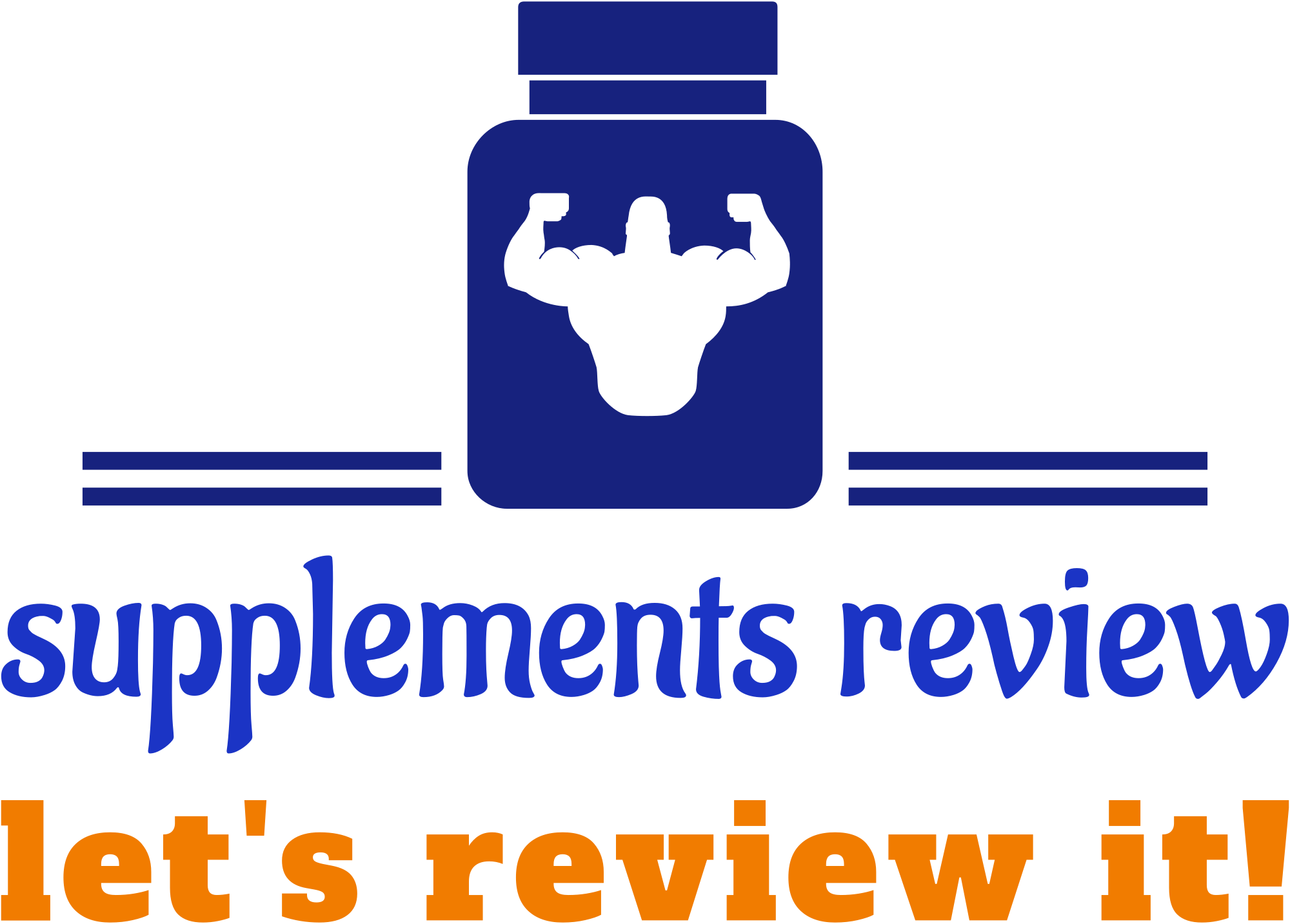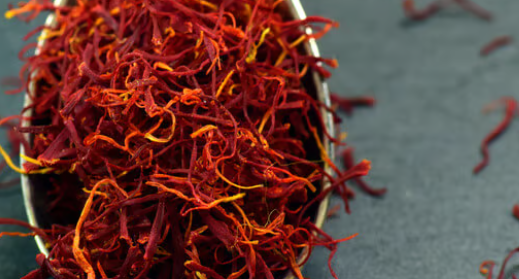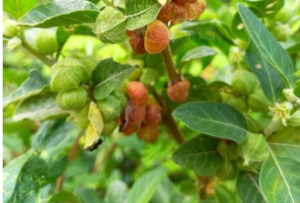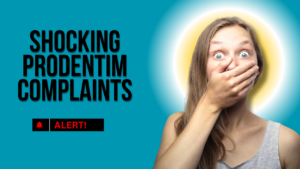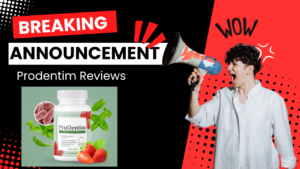The Benefits of Saffron Extract for ADHD Management
If you’re looking for natural ways to support ADHD management, saffron extract might be a game-changer for you. Saffron, a spice derived from the flower of Crocus sativus, is gaining attention for its potential therapeutic benefits in various health conditions, including attention deficit hyperactivity disorder (ADHD). Let’s delve into how saffron extract can be beneficial in managing ADHD symptoms.
Understanding ADHD
ADHD is a common neurodevelopmental disorder that affects both children and adults. Individuals with ADHD often experience challenges with attention, hyperactivity, and impulsiveness. Traditional treatments include behavioral therapies and medications like stimulants. However, some individuals are seeking alternative treatments that come with fewer side effects. This is where saffron extract comes into play.
What is Saffron Extract?
Saffron extract is concentrated from saffron’s stigma, known for its vibrant color and unique flavor. Beyond culinary uses, saffron contains bioactive compounds such as crocin, safranal, and picrocrocin, which contribute to its anti-inflammatory, antioxidant, and neuroprotective properties. These compounds have shown promise in studies related to mood, cognition, and behavior.
Benefits of Saffron Extract for ADHD
Let’s explore some key benefits of saffron extract that make it a valuable option for managing ADHD symptoms:
- Improves Attention: Research indicates that saffron may enhance focus and attention in individuals with ADHD. Its natural compounds can help regulate neurotransmitters, improving cognitive function.
- Reduces Hyperactivity: Certain studies suggest that saffron extract may help decrease hyperactive behaviors, allowing individuals to maintain a calmer disposition.
- Enhances Mood: Saffron is known for its mood-lifting properties. By potentially increasing serotonin levels in the brain, it can help counteract the mood swings often associated with ADHD.
- Fewer Side Effects: Unlike traditional stimulant medications, saffron extract may have a lower risk of side effects. This makes it a more appealing option for those sensitive to medication.
- Supports Overall Brain Health: The antioxidants found in saffron can help protect brain cells from oxidative stress, thereby promoting overall cognitive wellness.
Recommended Dosage of Saffron Extract for ADHD
Finding the right dosage is essential for receiving the potential benefits of saffron extract. Most studies involving saffron and ADHD have used doses ranging from 20 mg to 60 mg daily. It’s crucial to start with a smaller dose and gradually increase it, monitoring your body’s response. Always consult with a healthcare professional before adding any supplement to your regimen, especially if you are on medication or have underlying health conditions.
How to Incorporate Saffron Extract into Your Routine
Saffron extract into your daily life can be simple. Here are a few options to consider:
- Capsules: Many supplement brands offer saffron extract in capsule form, making dosage easy to manage.
- Tea: You can brew saffron threads in hot water for a soothing tea that combines flavor with potential health benefits.
- Cooking: Add saffron to your dishes, such as rice or soups, to enjoy its unique taste and color while benefiting from its properties.
Potential Risks and Considerations
While saffron extract is generally considered safe for most people, it’s essential to be mindful of potential risks. Excessive intake can lead to side effects such as nausea, dizziness, or allergic reactions. Pregnant women and those with certain medical conditions should approach saffron use with caution and consult a healthcare provider.
Final Thoughts
Saffron extract offers a promising alternative for managing ADHD, supporting attention, reducing hyperactivity, and potentially enhancing mood. As with any supplement, ongoing research is vital to understanding its full benefits and mechanisms. If you’re considering saffron extract, keeping an open dialogue with your healthcare provider will help ensure it’s a beneficial addition to your ADHD management strategy. Embracing saffron could be your step towards improved focus and a better quality of life.
Understanding the Recommended Dosage for Saffron Extract
Saffron extract has gained attention in various health circles for its potential benefits in managing symptoms of attention deficit hyperactivity disorder (ADHD). Many people are exploring natural alternatives to support brain function, and saffron extract has emerged as a popular choice. Understanding the recommended dosage for saffron extract is crucial to achieving the desired effects safely and effectively. Let’s dive into the details.
Why Consider Saffron Extract for ADHD?
Saffron, a spice derived from the flower of Crocus sativus, contains active compounds such as crocin and safranal. Research suggests that these compounds may assist in enhancing mood and attention, making saffron an appealing option for individuals managing ADHD.
Using saffron extract may offer a holistic approach to improving concentration, reducing hyperactivity, and mitigating impulsive behavior. Many users report improvements in focus and mental clarity after integrating it into their routine.
Determining the Appropriate Dosage
When it comes to natural supplements like saffron extract, the right dosage can vary based on individual needs, age, and the specific formulation of the extract. It’s critical to follow established guidelines or consult with a healthcare professional. Here are some suggestions that can help guide you:
- General Recommendation: Most studies suggest a standard dosage ranging from 20 mg to 30 mg of saffron extract taken daily.
- For ADHD Symptoms: Some research indicates that a dosage of about 30 mg per day may have beneficial effects on symptoms specific to ADHD.
- Monitoring Response: If you’re new to saffron extract, you might start with the lower end of the dosage range (e.g., 20 mg) and gradually increase to 30 mg as needed, allowing your body to adjust.
Forms of Saffron Extract
Saffron extract can come in various forms, including powders, capsules, and tinctures. It’s essential to check the concentration of the active ingredients in your chosen product because this can affect the amount of saffron extract you need to take. Here’s a quick look at the most common forms:
- Capsules: These provide a convenient and pre-measured dose.
- Powder: This form gives you the flexibility to mix it into smoothies or food.
- Tinctures: Usually more concentrated, tinctures may require a smaller volume for the same dose as powders or capsules.
Potential Benefits and Risks
Before starting saffron extract, it’s essential to understand both the benefits and potential risks. While many users may experience improvements in focus and attention, consider the following:
- Potential Benefits:
- May improve mood and emotional stability.
- Possible enhancement of cognitive function.
- Can reduce symptoms of anxiety, which often co-occur with ADHD.
- Possible Risks:
- High doses may lead to side effects such as nausea or dizziness.
- Can interact with certain medications (e.g., antidepressants).
- Should be taken with caution if you are pregnant or breastfeeding.
Consulting with Healthcare Professionals
Always talk with your doctor or a qualified healthcare professional before starting any new supplement, including saffron extract. They can help you develop a tailored dosage plan based on your health history and any medications you may be taking. Personalization is key; what works for one person may not work for another.
Final Thoughts on Saffron Extract Dosage
Saffron extract as a natural aid for ADHD symptoms can be a promising option. However, understanding the recommended dosage is vital for the best experience. By staying informed and monitoring your body’s responses, you can benefit from the potential advantages that saffron extract has to offer while minimizing any risks.
Remember, achieving optimal health is a journey, and saffron extract can be a helpful part of that path. Always prioritize safety and informed choices!
Potential Side Effects and Safety Considerations
Understanding the potential side effects and safety considerations of saffron extract, especially in relation to ADHD, is vital for anyone looking to explore this herbal supplement. While many individuals may find saffron extract beneficial, it is important to be aware of how it interacts with the body and what side effects could occur. This knowledge empowers you to make informed decisions regarding your health or the health of someone you care about.
Saffron extract, derived from the flower of Crocus sativus, is known for its vibrant color and aromatic properties, but it also contains compounds that may positively influence mood and cognitive function. People often turn to saffron extract as a potential natural aid for ADHD symptoms. However, dosage matters, and so does understanding how this supplement might affect you. Below are some critical safety considerations and potential side effects to keep in mind when considering saffron extract for ADHD.
Potential Side Effects of Saffron Extract
When taking saffron extract, some individuals may experience mild to moderate side effects. Common side effects might include:
- Headaches: Some users report experiencing headaches after consuming saffron extract.
- Nausea: Feeling queasy can be another side effect, particularly in higher doses.
- Dizziness: Some people might feel lightheaded or dizzy after taking saffron.
- Dry mouth: A common complaint among saffron users is a persistent dry mouth.
- Digestive issues: This can include upset stomach or mild gastrointestinal discomfort.
While these side effects are generally not severe, it is essential to monitor how your body responds, especially when starting a new supplement like saffron extract.
Serious Side Effects and Cautions
More serious side effects are less common but possible. If you experience any of the following, it is critical to seek medical advice immediately:
- Allergic reactions: Swelling, rash, or difficulty breathing could signal a serious allergic reaction.
- Severe nausea or vomiting: This may indicate that the dosage is too high.
- Changes in mood or behavior: As saffron may influence mood, any significant changes should be monitored carefully.
Safety Considerations When Using Saffron Extract
Before incorporating saffron extract into your routine, it’s important to consider the following:
- Consult a Healthcare Provider: Always consult a doctor before starting any new supplement, especially if you are pregnant, breastfeeding, or have an existing health condition.
- Avoid Combining with Certain Medications: Saffron may interact with antidepressants, blood-thinning medications, and other drugs. Discuss your current medications with your doctor to avoid adverse interactions.
- Dosage Awareness: Adhering to the recommended dosage is crucial. Higher doses are not necessarily better and can lead to unwanted side effects.
- Check for Purity: Ensure you are using high-quality saffron extract from a reputable source to minimize contamination risks.
Understanding the Right Dosage
Determining the optimal saffron extract dosage for ADHD may vary based on individual needs, age, and sensitivity to substances. Research generally suggests that a dosage range of 20 to 30 mg per day can be effective. However, your healthcare provider can help determine the best dosage for you or your child and monitor for any potential side effects.
It’s essential to start with a lower dose and increase it gradually, allowing your body to adjust and to observe how it responds. Having open communication with your doctor throughout this process is crucial for ensuring safe use.
As with any supplement, being well-informed is the key to making the best decisions for your health. Saffron extract shows potential for helping manage ADHD symptoms, but understanding the possible side effects and safety considerations will help you make confident choices. Remember, your health is a priority, and it’s always wise to approach new treatments with caution and care.
Combining Saffron Extract with Other ADHD Treatments
Managing ADHD often requires a multifaceted approach. While traditional treatments include behavioral therapy and medication, complementary options, such as saffron extract, are becoming increasingly popular. It’s essential to understand how saffron extract interacts with other ADHD treatments to maximize its potential benefits while ensuring safety and efficacy.
Understanding Saffron Extract
Saffron extract, derived from the flower Crocus sativus, has been studied for its potential benefits in various health conditions, including anxiety and depression. Emerging research indicates that it may also help manage ADHD symptoms. This spice contains active compounds like crocin and safranal, which may influence neurotransmitter activity in the brain, potentially improving focus and reducing hyperactivity.
Potential Benefits of Combining Saffron Extract with Traditional Treatments
Using saffron extract alongside conventional ADHD treatments may offer several advantages:
- Enhanced Symptom Management: While medications primarily target symptoms, saffron may offer supportive benefits, such as improved mood and reduced anxiety, which are often coexistent with ADHD.
- Natural Alternative: For those wary of chemical medications, saffron is a natural option that might complement pharmaceutical treatments, providing holistic support.
- Fewer Side Effects: Patients may experience fewer side effects compared to prescription medications, especially if they are sensitive to stimulant drugs.
How to Combine Treatments Effectively
If you’re considering adding saffron extract to your ADHD management plan, here are some essential tips:
- Consult Your Healthcare Provider: Always talk to your doctor before starting any new supplement, especially if you’re already on medication.
- Start Slow: Begin with a low dose of saffron extract, monitoring how it affects you alongside your current treatments.
- Maintain Consistency: Be consistent with your dosing schedule to help assess how well saffron works with other treatments.
Possible Interactions with Medications
While saffron extract is generally safe, it can interact with certain medications, including:
- Antidepressants: Saffron can potentiate the effects of these medications, which may lead to increased side effects.
- Blood Thinners: If you’re on anticoagulant medications, consult your provider, as saffron may also have mild blood-thinning properties.
- Stimulant Medications: Combining saffron with stimulants may improve focus but needs careful management under supervision.
Determining the Right Dosage
The appropriate dosage can vary based on individual needs and the specific formulation of saffron extract. Common dosages range from 30 mg to 200 mg daily, depending on the extract’s concentration. Always remember:
- Start with Lower Doses: If you’re new to saffron, starting low and increasing gradually helps minimize side effects.
- Monitor Your Response: Keep a journal of your symptoms and how you feel. Adjust your dosage based on what works for you and advice from your provider.
Personalized Approach to ADHD Management
No one treatment fits all when it comes to ADHD. A combination of behavioral therapies, lifestyle changes, and dietary adjustments can yield the best results. Saffron extract may play a role in this mix, but its effectiveness can differ from person to person.
Saffron extract into your ADHD treatment plan requires a thoughtful approach. By collaborating with healthcare professionals and personalizing your strategy, you can potentially improve your concentration and overall well-being. Exploring this natural option can be a step forward in navigating the complexities of ADHD management.
Always keep in mind that while saffron may be beneficial, it should complement—not replace—any existing treatment you’re currently receiving. Each individual’s journey with ADHD is unique, and monitoring how your body responds is key to finding an effective balance.
Personal Experiences: Saffron Extract Success Stories for ADHD
Many individuals are exploring natural remedies to manage ADHD symptoms, and saffron extract has emerged as a prominent choice. Known for its vibrant color and unique flavor, saffron is not just a culinary delight; research suggests it may offer therapeutic benefits, particularly for those with attention deficit hyperactivity disorder (ADHD). Below are personal experiences highlighting the successes of saffron extract for managing ADHD, showcasing its impact on various aspects of daily life.
Improved Focus and Concentration
One parent shared their child’s journey with ADHD and the subsequent addition of saffron extract to their routine. Initially skeptical, they noticed a profound change over several weeks. Their child, who used to struggle to complete homework and often found it challenging to stay on task, showed a marked improvement in focus. The parent stated, “After starting saffron, my child could concentrate longer and seemed happier to engage with schoolwork.” This transformation not only improved the child’s academic performance but also built their confidence.
Reduced Hyperactivity
A college student recounted their experience using saffron extract to combat hyperactivity. Juggling coursework, part-time work, and social engagements often felt overwhelming. After incorporating saffron into their routine, they reported a decrease in the overwhelming need to be constantly active. “I felt calmer and more in control of my energy levels,” they explained. “This laid-back attitude helped me tackle my studies without feeling restless.” The student found it easier to participate in discussions and concentrate during lectures, leading to improved grades.
Emotional Regulation
One adult shared another success story, emphasizing the emotional benefits of saffron extract. Living with ADHD often meant dealing with mood swings and emotional outbursts. However, after integrating saffron into their daily regimen, the individual noted an increase in emotional stability. They stated, “Saffron helped me feel more centered. I could approach challenges without becoming overwhelmed.” This enhancement in emotional regulation allowed them to maintain better relationships with family and friends, fostering a supportive environment that contributed to their overall well-being.
Natural Sleep Aid
Sleep disturbances often accompany ADHD, making it another area where saffron has shown promise. A mother noted her son’s history of insomnia stemming from his condition. After introducing saffron extract, the mother observed a significant improvement in her son’s sleep patterns. “He now falls asleep quicker and wakes up feeling refreshed,” she shared. This newfound sleep quality not only benefited the child’s mood but also improved the family dynamic, creating a calmer home environment.
Recommended Dosage and Usage
For those considering saffron extract for ADHD, dosage can vary, but many find success with a daily intake of about 30 mg. Always ensure to consult a healthcare professional before starting any new supplement, especially for children. It’s important to monitor effects closely and adjust the dosage based on individual needs.
How to Incorporate Saffron into Your Routine
- Saffron Supplements: Available in capsule form, these are easy to incorporate into any daily routine.
- Cooking with Saffron: Adding saffron threads to meals or teas can enhance both flavor and potential benefits.
- Saffron Tea: Brewing saffron in hot water can make a soothing drink while delivering its benefits.
Holistic Approach
While personal stories showcase the positive impacts of saffron extract, it’s crucial to take a holistic approach when managing ADHD. Many individuals report combining saffron with other therapies, such as behavioral interventions or cognitive therapy, to enhance overall outcomes. One adult shared, “saffron alongside my therapy sessions created a well-rounded approach that worked for me.”
The potential of saffron extract in managing ADHD symptoms is encouraging, as illustrated by the experiences shared by parents, students, and adults alike. From improved focus and reduced hyperactivity to better emotional regulation and sleep, many are finding solace and a new lease on life with this natural remedy. If you are considering integrating saffron extract into your ADHD management strategy, doing so under the guidance of a healthcare professional is vital for ensuring optimal results and safety.
Saffron extract not only demonstrates promise but also sheds light on a natural path well worth exploring for those seeking alternative solutions to manage ADHD.
Conclusion
Saffron extract presents an intriguing natural option for managing ADHD symptoms, demonstrating a variety of potential benefits. From improving focus to enhancing mood, it has caught the attention of both researchers and individuals seeking alternative treatments. Understanding the recommended dosage is crucial; typically, doses around 30 mg daily show promising results, but it’s vital to tailor this based on individual needs and guidance from healthcare professionals.
While saffron is generally considered safe, awareness of potential side effects is necessary. Common side effects may include digestive upset or allergic reactions, making it essential to monitor your response to the supplement carefully. This awareness can help ensure a positive experience while integrating saffron into your ADHD management plan.
Considering a holistic approach, combining saffron extract with other ADHD treatments can lead to even better outcomes. Whether it’s a behavioral therapy regimen or standard medications, saffron may complement existing strategies and enhance overall well-being.
Personal experiences shared by those using saffron extract for ADHD often portray encouraging results. Many report improvements in concentration and reductions in impulsivity, showcasing saffron’s potential role in a comprehensive treatment plan.
While saffron extract is not a one-size-fits-all solution, its benefits, appropriate dosing, and safety can make it a valuable addition for many seeking to manage ADHD effectively. As always, consulting with a healthcare professional before starting any new treatment is advisable to ensure the best possible outcome tailored to your unique situation.
